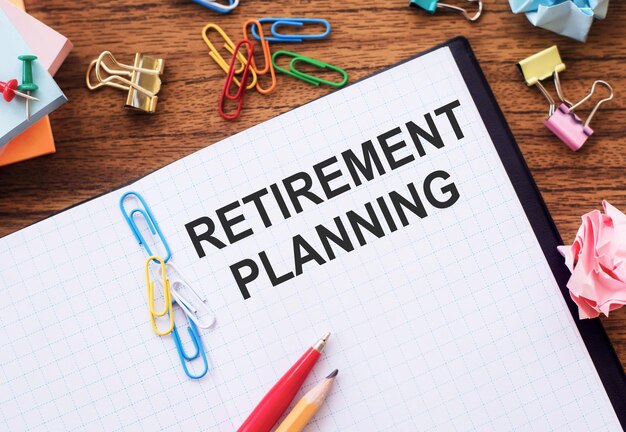Your Guide to Can You Receive Pension Before It Vests
What You Get:
Free Guide
Free, helpful information about Pension FAQ and related Can You Receive Pension Before It Vests topics.
Helpful Information
Get clear and easy-to-understand details about Can You Receive Pension Before It Vests topics and resources.
Personalized Offers
Answer a few optional questions to receive offers or information related to Pension FAQ. The survey is optional and not required to access your free guide.
Unlocking Pension: Can You Access It Before It Vests?
Navigating the world of pensions can often feel like an intricate puzzle. Whether you're planning for retirement or changing jobs, understanding how and when you can access your pension benefits is crucial. One common question many face is whether they can receive pension benefits before their plan actually vests. In this comprehensive guide, we’ll delve into the topic of pension vesting, explore various scenarios, and clarify what options might be available to you.
Understanding Pension Vesting
What is Vesting?
Vesting refers to the process by which employees earn the right to receive full benefits from their pension plan. Typically, vesting requirements stipulate a certain period of service that needs to be completed before you own the contributions made by your employer.
Types of Vesting Schedules
- Cliff Vesting: Benefits are fully vested after a specified period. Until this time is completed, none of the benefits are guaranteed.
- Graded Vesting: Benefits vest incrementally over time, allowing partial ownership of the pension benefit to grow each year.
Importance of Vesting
Understanding the vesting status of your pension plan is fundamental in retirement planning because it determines when you can fully claim the benefits.
Early Access to Pension: Is It Possible?
Before Vesting: Limited Options
In general, traditional pension plans do not allow for early access to funds or benefits before they have vested. This policy is in place to encourage employee retention and ensure that funds are available for future retirement.
After Job Change or Termination
If you're wondering about pension portability—what happens when you switch jobs—most policies allow you to retain any vested benefits. However, non-vested benefits are typically forfeited.
Seeking Early Distribution
While early access is predominantly unavailable, some specific scenarios may allow for taking withdrawals:
- Financial Hardship: Certain plans may have provisions for early withdrawal in case of severe financial distress, though this is typically taxed and fined.
- Disability or Health Concerns: Unforeseen health issues may, in rare situations, provide grounds for accessing pension benefits early, subject to plan rules and legal guidelines.
Pensions and Retirement Planning
Evaluating Your Pension Plan
To effectively plan around your pension, it's critical to:
- Review Vesting Schedules: Knowing how far along you are in your vesting schedule can aid in future planning.
- Consider Future Mobility: Understanding the ramifications of job changes on your pension is helpful in strategic career planning.
Alternative Savings Strategies
While pensions are an excellent retirement savings vehicle, diversifying savings through IRAs or 401(k)s can offer additional security.
Key Considerations
Tax Implications
After retirement, pension benefits become part of your income. It's crucial to incorporate potential taxation into your retirement plans.
Future Policy Changes
Pension laws and tax codes can change. Staying informed about legislative changes affecting pensions ensures your retirement plan remains sound.
Practical Takeaways
Here's a quick overview of critical points regarding accessing pensions before vesting:
- 🌟 Vesting is key to determining when you own your retirement benefits.
- 🔒 Access before full vesting is typically not allowed and hard to maneuver.
- 📊 Review your plan documents regularly for updates on vesting schedules and distribution policies.
- 🛡️ Retirement diversity: Supplement pensions with other savings options for greater security.
Planning Your Pension Path
Understanding the intricacies of pension vesting and access is essential for securing a sound financial future. While the guidelines for early access to your pension before it vests are strict, being aware of your plan’s particulars and potential alternatives can help you make informed decisions. Maintaining a diversified financial plan will ensure you have several assets growing and available for when you finally retire.
The journey towards a well-funded retirement requires careful planning today, so review your pension plan, stay informed about your options, and explore alternative savings routes to achieve your retirement goals.
What You Get:
Free Pension FAQ Guide
Free, helpful information about Can You Receive Pension Before It Vests and related resources.

Helpful Information
Get clear, easy-to-understand details about Can You Receive Pension Before It Vests topics.

Optional Personalized Offers
Answer a few optional questions to see offers or information related to Pension FAQ. Participation is not required to get your free guide.


Discover More
- a Banff Boutique Inn Pension Tannenhof
- Am I Entitled To My Husband's Pension If We Separate
- Are Federal Pensions Taxed
- Are Military Pensions Taxable
- Are Pension Benefits Taxable
- Are Pension Benefits Taxable In Pa
- Are Pension Benefits Taxable Income
- Are Pension Contributions Tax Deductible
- Are Pension Payments Taxable
- Are Pension Payments Taxed
